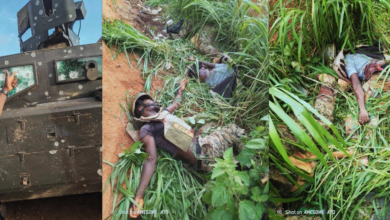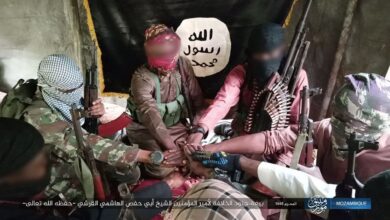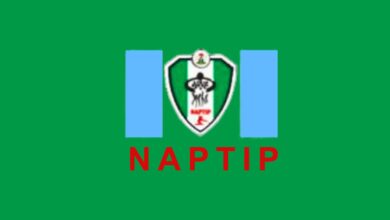Malnutrition Cases Rising Among Children In Northeast Nigeria
Cases of malnutrition have been rising in camps for displaced people in Nigeria’s northeast. A long predicted hunger crisis has arrived, medical staff on the ground say.
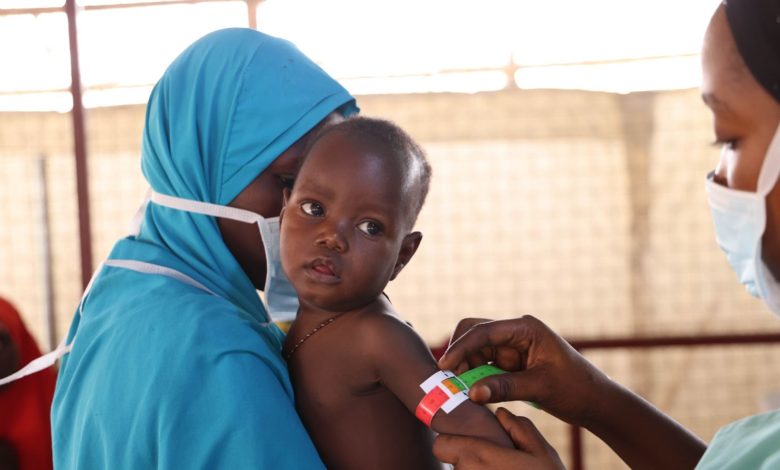
Cases of malnutrition have been rising rapidly in the past few months in northeast Nigeria, especially among children living in Internally Displaced Persons (IDPs) camps.
International aid organisations have sounded the alarm saying a predicted crisis has arrived.
Analysts who study how crises develop have been warning for months that northeast Nigeria was likely to see a malnutrition crisis develop, and now clinics and feeding stations say they are seeing the evidence.
There are an “unprecedented” number of malnourished children coming into a therapeutic feeding centre in Nilefa Kiji, Maiduguri, Medicines Sans Frontiers say. Their clinicians have observed a “massive increase” in admissions for both moderate and “severe-acute” cases of malnutrition.
Between January and April this year, 1,283 children were admitted to the clinic. That is more than double the number seen in the same period last year, MSF said.
The report indicated that in January this year, 75 children were being admitted every week for severe malnutrition. That is three times the average amount for the same period in the past five years, and a 120 per cent increase on the number who came last year.
That number is still rising, MSF says.
Htet Aung Kyi, an MSF medical coordinator said “The massive increase in malnourished children calls for malnutrition prevention and treatment activities to be scaled up immediately to avoid a catastrophic situation when the hunger gap arrives.”
The Hunger gap –the pre-harvest shortage period– is still weeks away.
Ambassador’s visit
Elsewhere in the city, French Ambassador, Emmanuelle Blatmann, paid a visit to another camp in Maiduguri where the World Food Programme (WFP) runs a malnutrition program for IDPs.
The visiting ambassador said France had allocated €6.9 million to support the program this year. So far, €3 million has already been disbursed, and the remaining amount will be released in the upcoming months.
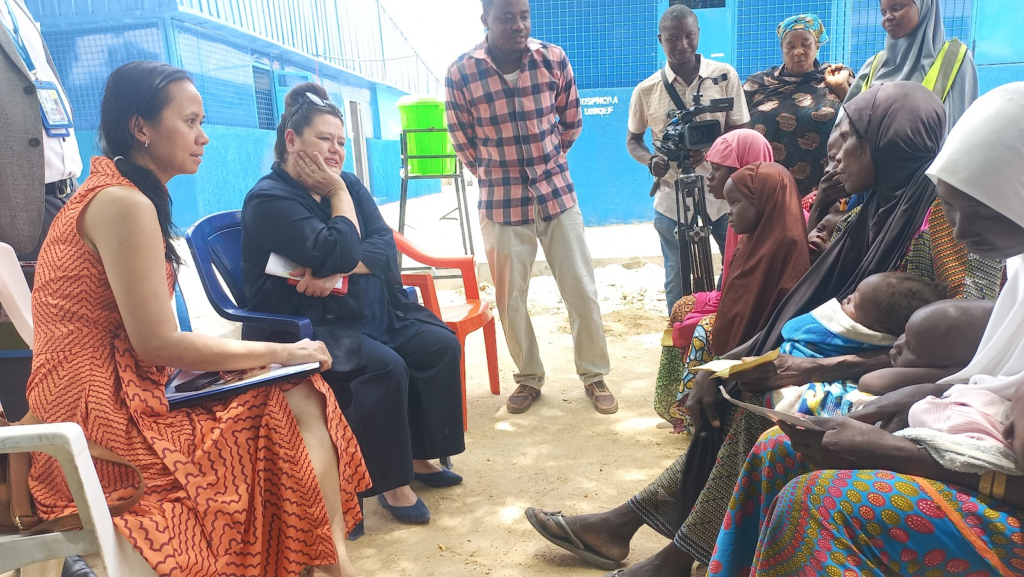
“We have considered Nigeria and, more specifically, the northeast in the last three years,” she said, adding that France has financed 28 projects for a total amount of around 21 million euros for Borno state, essentially for the sectors of food security and health, benefiting over one million people.
At the camp’s nutrition clinic, mothers and children with moderate and acute malnutrition were seen being attended by officials.
Urgent
Falmata Musa, a 32-year-old mother, was seen carrying a set of six-month-old twins she brought to the clinic as returning patients.
She said her twins, a second set of the seven deliveries she had so far made, had suffered acute malnutrition a few months after she delivered them.
“My twin boys, Bamusa and Mustapha, are now doing well, as you can see, since they began receiving nutrition care here at the Muna Camp nutrition centre,” she said.
Ambassador Blatmann expressed her concern over the worsening malnutrition issue in Nigeria as she said already 4.5 million people are affected by the problem and about 1.4 million of them are from the northeast.
According to the senior WFP official, recent assessments indicate that between two and 4.3 million people in the northeast of Nigeria urgently require food and nutritional support. Of this number, 700,000 people are experiencing acute severe malnutrition, which requires immediate attention to prevent irreversible damage to their health, the official said.
The ongoing conflict with terrorists in the northeast and west, and the floods last year have combined to deepen the “hungry season”, the gap between the stores of last year’s harvest running out, and this year’s coming in.
Support Our Journalism
There are millions of ordinary people affected by conflict in Africa whose stories are missing in the mainstream media. HumAngle is determined to tell those challenging and under-reported stories, hoping that the people impacted by these conflicts will find the safety and security they deserve.
To ensure that we continue to provide public service coverage, we have a small favour to ask you. We want you to be part of our journalistic endeavour by contributing a token to us.
Your donation will further promote a robust, free, and independent media.
Donate Here


